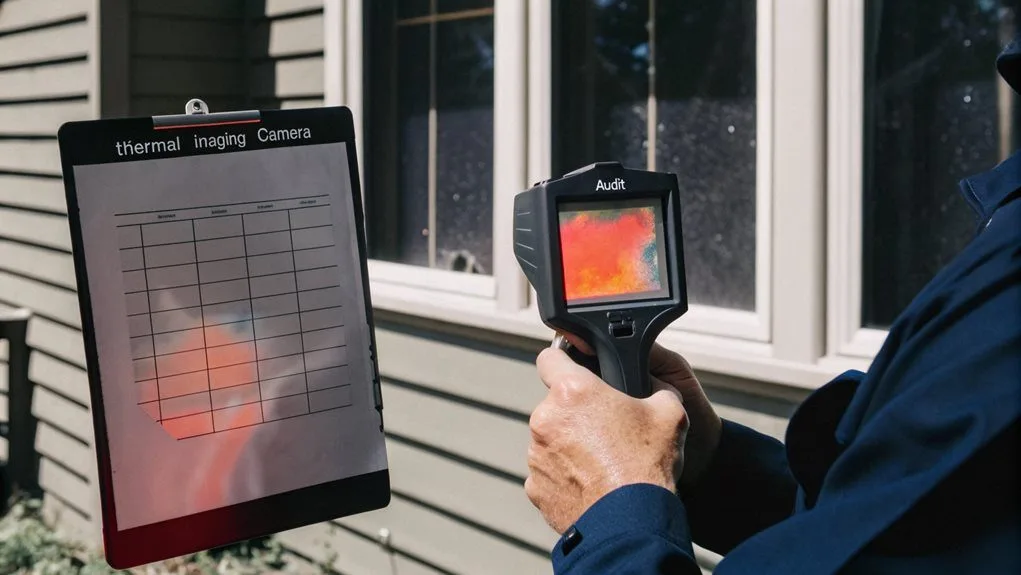Professional energy audits offer compelling financial returns for SMEs and large enterprises alike. These assessments, costing £1,000 – £15,000 for commercial premises, typically deliver savings that outweigh initial investments within three to five years. For many clients, on-site audits form the cornerstone of wider commercial energy-efficiency strategies.
Specialist engineers deploy advanced tools such as thermal imaging and power-quality meters to uncover inefficiencies, often revealing opportunities to trim utility spend by as much as 60 %. Numerous utility networks even subsidise, rebate, or fully fund audits, making this smart investment easier to justify.
The Cost–Benefit Equation of Commercial Energy Audits
When boardrooms consider energy-efficiency projects, a robust assessment of professional audit value is vital. Larger facilities command fees at the upper end of the scale, yet even a modest 10 % consumption cut can return the audit fee inside the first fiscal year.
Typical returns include:
- Utility savings that exceed audit cost within a single budget cycle.
- Supplier rebates or grants—many DNOs provide partial funding for qualifying businesses.
- Guarantees from audit providers that projected savings will meet or beat professional-fee levels.
Strategic CFOs also consider long-term upside—from asset-value uplift to brand-enhancing ESG accreditation. Data-driven audits help identify energy-hungry plant that silently erodes profit margins.
How Consultancy Unlocks Hidden Commercial Savings
Many organisations overlook sizable efficiency gains. Specialist energy consultants combine procurement expertise with forensic site surveys. In deregulated markets, advisors benchmark third-party tariffs and negotiate contracts that mirror consumption profiles. Even under regulated frameworks, auditors frequently recover historic over-charges and optimise meter classifications, as outlined in industry case studies.
Beyond commodity costs, consultants evaluate:
- Legacy HVAC plant nearing end-of-life efficiency thresholds.
- Building-fabric weaknesses—poor insulation, air leakage, rooflight heat loss.
- Process-equipment oversizing or ineffective controls inflating kWh demand.
Using cloud-connected submeters, data loggers, and the Houston analytics platform, auditors quantify “invisible” baseload, highlight atypical usage spikes, and model ROI for each corrective measure—often surfacing 25 % savings potential.
Audit Methodologies for Business Premises
Commercial managers can choose from three principal audit approaches:
- Level-1 walk-throughs —rapid visual inspections with broad efficiency pointers; minimal cost.
- Comprehensive Level-2 audits —thermography, blower-door tests, and data-logging establish granular loss maps.
- Remote or virtual audits —AI-driven analytics paired with client-supplied interval-data streams to flag anomalies.
For medium-to-large sites, thorough Level-2 studies yield the most actionable paybacks—up to 60 % utility reduction according to sector research.
Commercial Audit Outcomes: UK Case Highlights
Across British industry, ECO-style schemes have delivered lifetime savings exceeding 224,000 GWh. Implementation of audit actions between 2008 and 2022 cut average enterprise energy demand by 41 %, materially shrinking carbon footprints and bolstering net-zero credentials.
A comprehensive assessment typically flags quick-win measures—LED upgrades, VSD drives, compressor leak fixes—plus capital projects such as high-efficiency chillers. Many firms recover capex within three to five years thanks to avoided kWh and reduced Climate Change Levy.
High-Impact Measures & ROI
- Roof-void insulation: payback ≈ 2 yrs, £215 average annual saving.
- High-efficiency condensing boilers or heat pumps: gas drop of 30 %.
- Draught-proofing and BMS control tweaks: low-cost, rapid ROI.
Smart thermostat programming and eco-mode appliance settings can shave an additional £110 per site each year.
From Audit to Implementation: Success Drivers
Implementation rates correlate with payback under three years, minimal operational disruption, and C-suite sponsorship. Sector-specific playbooks boost uptake by tailoring recommendations to process demands, while simplified, actionable reports outperform dense technical dossiers.
Beyond Cost Savings: Carbon & Environmental Dividends
Financial drivers often open the boardroom door, yet streamlined usage also drops greenhouse-gas emissions, pollution, and raw-resource extraction. Taken together with renewable-generation add-ons, audits underpin broader ESG strategies.
- Cleaner air and water through lower combustion.
- Reduced strain on finite fossil reserves.
- Creation of skilled green jobs within energy-service supply chains.
Choosing the Right Energy Consultancy for Your Business
Selecting an experienced advisor is critical. Confirm professional certifications, review track records with comparable sites, and ensure proposals integrate seamlessly with collaborative technology partners. Transparent fee structures and measurable success metrics indicate a strong match.
Ready to quantify your site’s hidden savings? Book an Ampergia audit and convert inefficiencies into competitive advantage today.

